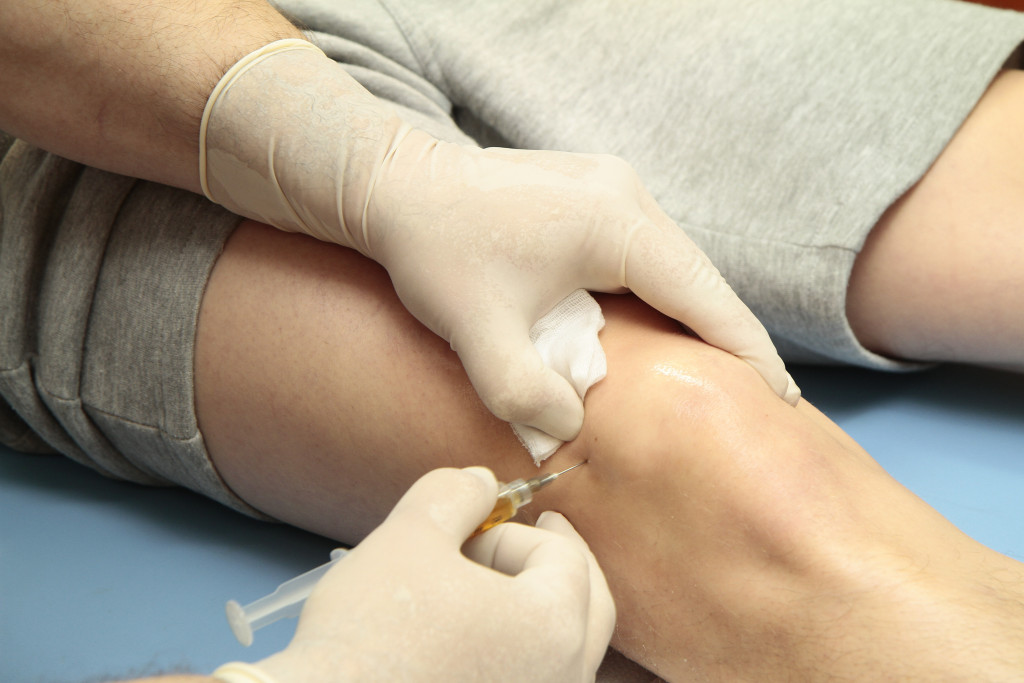More than 30 million senior Americans suffer from falls each year. 7 million suffer significant injuries costing $30 billion in annual Medicare costs, averaging around $4,200 per person. A bad fall will often mark the end of independent living or even lead to untimely death. Utah seniors hold their independence with high regard, and being sent to a home can be heartbreaking. Fortunately, falls are preventable. A few changes to your home and lifestyle can reduce your chances of taking long rides to the hospital and ensure your independence.
Get Your Vision Checked
Proper vision is essential in preventing accidents. Unlevelled floors, obstacles, and moving people or objects can disrupt balance and cause falls. Poor vision can also cause bouts of vertigo, particularly with sudden changes in lighting. In the US, vision loss is often taken for granted as a normal part of aging. However, 90 percent of vision loss can be prevented or treated. Most cases of age-related vision loss are due to refraction errors and cataracts.
Prescription glasses can easily treat refraction errors, and surgeries can get rid of most cataracts. LASIK or laser eye surgery is also a good option. Of course, good vision is useless if you can’t see your surroundings. Make sure to keep the lights in your corridors lit — particularly the ones leading to the bathroom. You can also install timers that turn lights on and off on a schedule. Avoid using motion-activated lights. The sudden brightness can be confusing enough to cause vertigo in most seniors.
Make Changes to Your Home
Most falls happen at home. You might think your home is safe, but problems can occur once you begin to lose mobility. The constant trips to the bathroom will be a pain — and sitting down and getting up again can be punishing on the knees. In Salt Lake City, most accidents in senior homes (80 percent) occur in the bathroom. Slippery floors and hard ceramic tiles are a recipe for disaster — but you can deal with the problem with basic home remodeling. Install grab bars on the walls heading to the toilet and a few more supports to help you sit down.
Raised seats are also a good option. If you have mobility problems, you’ll need bigger doors to accommodate a wheelchair. Clear the path to the toilet and make sure there aren’t any rugs that can get stuck on a wheel or tangle a walking stick. Regular showers can get dangerous, and bathtubs are almost impossible to get into without risking injury. Stay clean with a walk-in tub. You stay seated inside the tub with your feet planted on the ground as it fills up with water — allowing you to relax in safety as you immerse yourself in water.

Check Your Medication
Medication that affects the nervous system or blood circulation can increase the risks of falls. Heart medication, sedatives, anti-depressants, MO inhibitors (anti-psychotics), anti-epileptics, and Parkinson’s medication are the most disruptive medications. However, even simple allergy medicine can cause vertigo. Ask your doctor or pharmacist if your medication might increase your chances of falling and opt for better alternatives.
Most medications have particular doses, and going over can be disastrous. If you have memory lapses, getting a timed pill dispenser might be a good choice. Pill dispensers will dispense the right amount of pills each day, ensuring you don’t take one too many.
Stay Active
If you want to maintain your mobility, you need to stay mobile. Any physical activity strengthens your bones and musculature. The adage “you lose it if you don’t use it” is particularly apt for seniors. Stretch your legs with everyday morning walks. Walking is a good way to work on your balance while strengthening your body. The extra vitamin D from sunlight will also allow your body to use calcium and boost your immunity. Activities that focus on balance are great options. Join a Tai Chi program or go dancing with your partner.
Go with a group so you’ll stay motivated. Social interactions can make activities less tiresome as well as keep your mind busy. Regular exercise will also keep the weight off. Packing a few extra pounds can be hard on your joints — increasing your chances of going sedentary. As a bonus, just losing 10-20 pounds can reduce your chances of heart disease and strokes. You’ll look better, and you’ll avoid the falls of the more permanent kind.
One big fall can spell the end of your independence or even life. Make efforts to reduce your likelihood of falling by changing your home, medication, and lifestyle.


